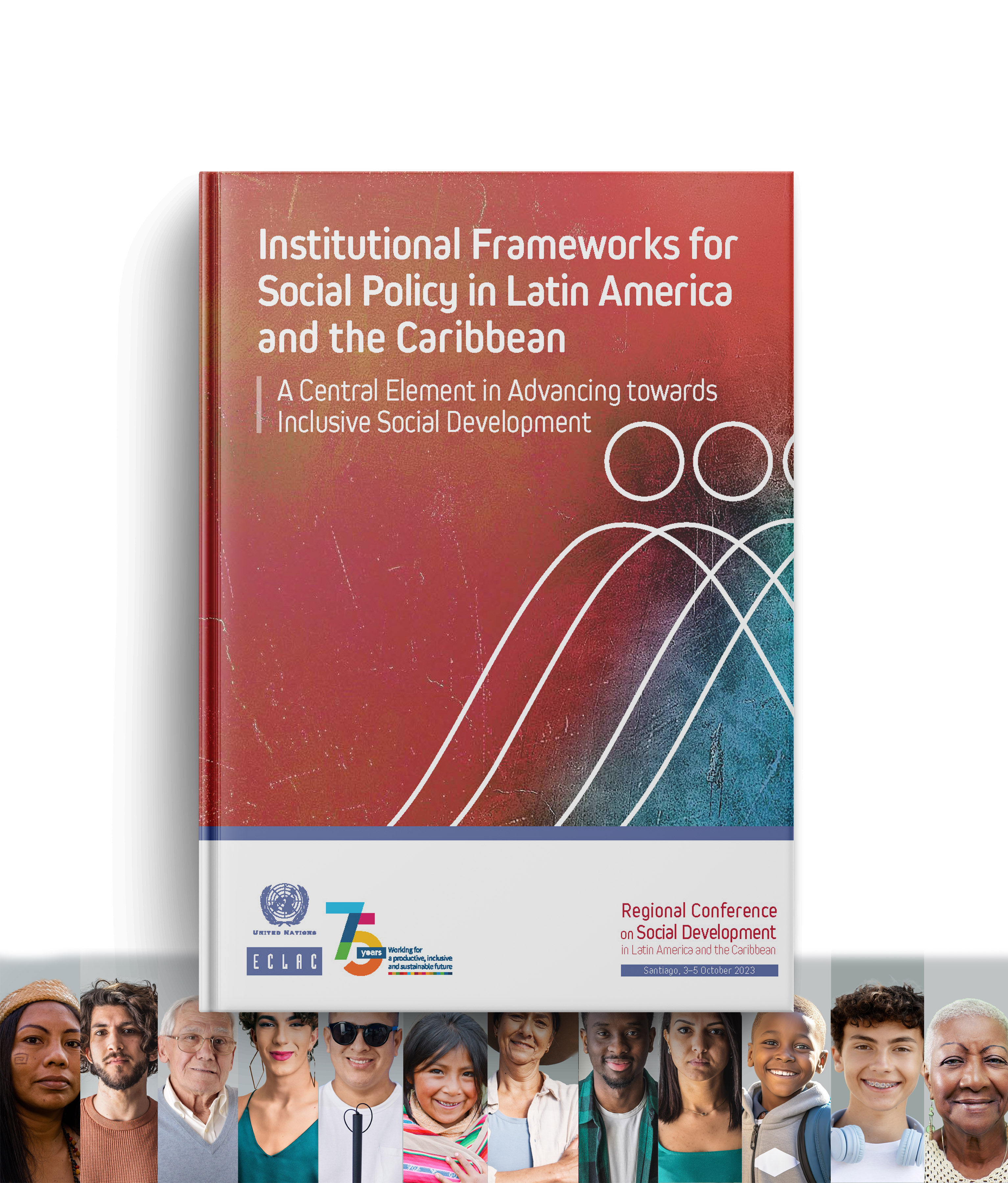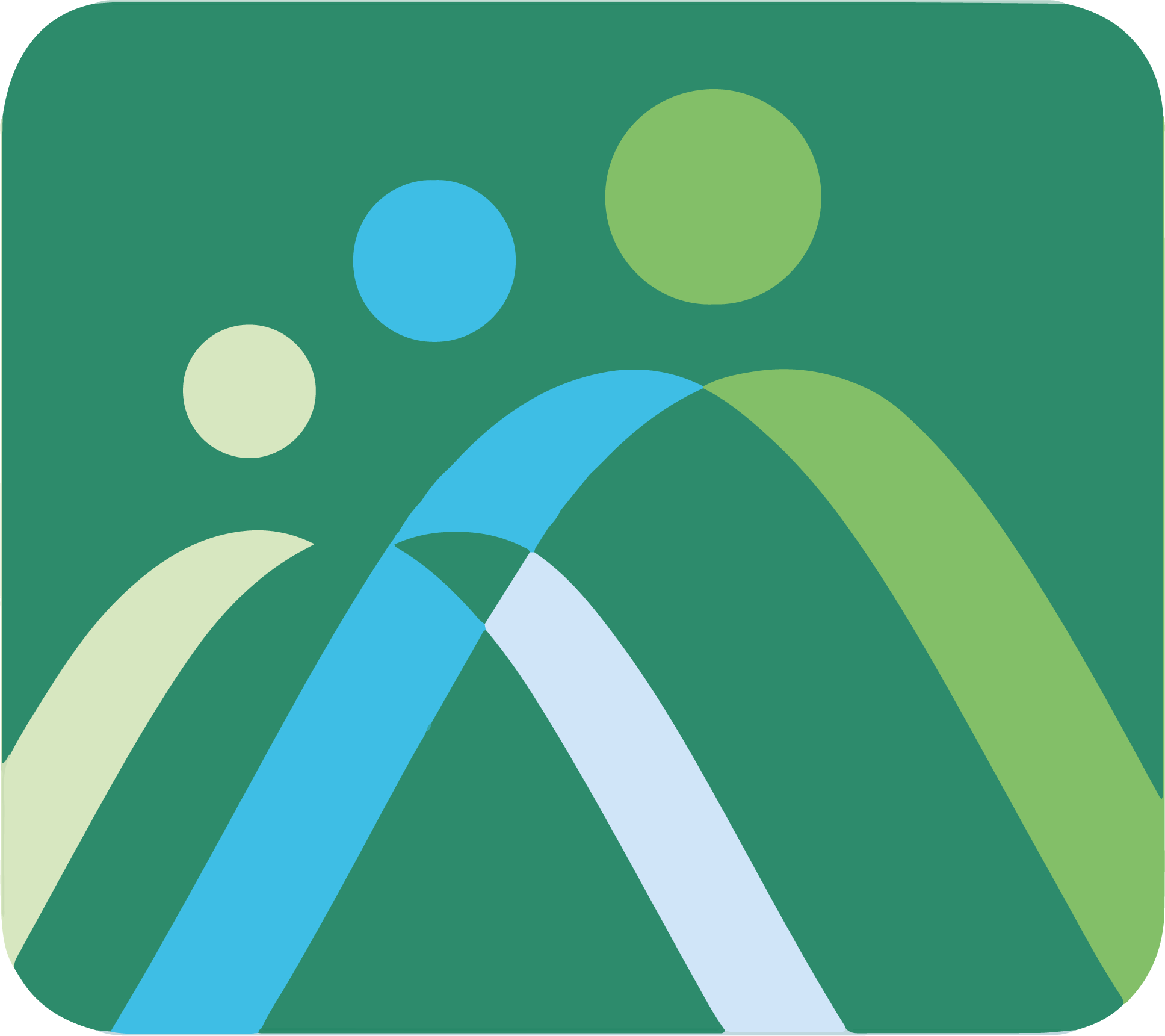New ECLAC Document Offers Recommendations for Strengthening the Social Institutional Framework in Latin America and the Caribbean
Work area(s)
The publication was presented at the Fifth Session of the Regional Conference on Social Development in Latin America and the Caribbean, which is taking place in Santiago, Chile.

At least 12 guidelines for strengthening the institutional framework of the region’s Social Development Ministries, in five key areas, are offered in a new document prepared by the Economic Commission for Latin America and the Caribbean (ECLAC) to inform the debates of the Fifth Session of the Regional Conference on Social Development in Latin America and the Caribbean.
The position document entitled Institutional Frameworks for Social Policy in Latin America and the Caribbean: a Central Element in Advancing towards Inclusive Social Development analyzes the state of the social institutional framework in the region’s countries, examines comparative experiences and seeks to define paths to follow to strengthen capacities and thereby improve the quality of social development policies.
The publication was presented by José Manuel Salazar-Xirinachs, ECLAC’s Executive Secretary, and Alberto Arenas de Mesa, Director of its Social Development Division, on the first day of the conference organized in conjunction with the Government of Chile and the United Nations Development Program (UNDP), and which is taking place through Thursday, October 5 in person in Santiago, Chile.
“Strengthening the social institutional framework is fundamental for promoting quality social policies that allow for eliminating poverty and reducing inequality in the region,” Salazar-Xirinachs emphasized during the presentation.
However, for Social Development Ministries or equivalent entities to achieve their broad goals for inclusion and social protection, it is important to have a comprehensive view, the senior United Nations official stressed. This means that social policies must be articulated with policies for growth, productive development and the labor market.
“In light of the cascading crises that have affected the region, and the delay on progress towards the Sustainable Development Goals (SDGs), it is necessary to quicken the pace and redouble efforts,” ECLAC’s Executive Secretary insisted.
In 2019, at the Third Session of the Regional Conference on Social Development in Latin America and the Caribbean, the region’s countries approved the Regional Agenda for Inclusive Social Development, based on the time frame defined in the 2030 Agenda for Sustainable Development.
This Regional Agenda includes axes and lines of action for moving forward on the attainment of the SDGs in the region. One of its four axes proposes a strengthened social institutional framework to implement high-quality social policies.
“The countries thus recognize that consolidated and resilient institutional frameworks for social policy are needed to ensure that public policies help to promote, protect and guarantee the full enjoyment of all economic, social, cultural and environmental rights,” states the publication presented at the Regional Conference’s Fifth Session in Santiago.
ECLAC proposes the following guidelines for strengthening the social policy institutional framework of Latin America and the Caribbean’s Social Development Ministries:
Legal-regulatory dimension
- Consolidate the legal and regulatory framework, to promote a rights-based approach and universalism that is sensitive to differences.
- Improve the alignment of regulatory aims and mandates with the capacity of the institutional framework for social policy.
Organizational dimension
- Invest in human resources, capabilities and technology to ensure positive outcomes.
- Enhance efficiency and sustainability through coordination, decentralization and participation.
Technical-operational dimension
- Invest in information systems for decision-making.
- Expand and disseminate social information at the intersectoral and population levels to reaffirm and consolidate the central role of inclusive social development.
- Consolidate and create social policy monitoring and evaluation systems.
- Expand the use of metrics in social policy decision-making.
Financial dimension
- Pursue financial sustainability in order to strengthen institutional frameworks for social policy, to eradicate poverty and reduce inequality.
- Produce and disseminate studies on the socioeconomic cost of existing social gaps.
Cross-cutting
- Conduct strategic forward planning.
- Pursue new social and fiscal compacts.
In order to tackle the region’s structural and emerging challenges, progress must be made on strengthening and modernizing the laws that regulate Social Development Ministries, setting out well-defined mandates, with a clear social authority, a robust organizational model, suitable human resources policies, and sufficient and sustainable financial resources, ECLAC summarizes.
With regard to the financial dimension, the document stresses the need to have enough resources to enable a minimum level of benefits to be maintained, to offer well-being in accordance with social rights and the 2030 Agenda’s Goals.
In that vein, the publication includes an estimate of the resources needed to close the poverty gap in 14 countries of the region (2021).
With an average annual increase of 0.1% of GDP in public spending on non-contributory social protection income transfers for households, almost the entire population of the region would reach an income level equal to or higher than the extreme poverty line by 2030, ECLAC states.
The document also emphasizes that “the institutional framework for social policy and governance are both fundamental and interdependent in the construction of good-quality social policies. A social policy institutional framework that has greater capacities and margin for decision-making helps to make the governance of social policies more effective and transparent.”
Related content

Strengthening the Social Institutional Framework and Governance is Fundamental for Making Progress on Eradicating Poverty and Reducing Inequality in the Region
The Fifth Session of the Regional Conference on Social Development in Latin America and the Caribbean – organized by ECLAC, the Government of Chile and the UNDP – was inaugurated today in Santiago,…
Related event

Fifth session of the Regional Conference on Social Development in Latin America and the Caribbean
The Fifth session of the Regional Conference on Social Development in Latin America and the Caribbean of ECLAC and the XV Ministerial Forum for Development in Latin America and the Caribbean of UNDP,…
Type
Country(ies)
- Latin America and the Caribbean
Contact
Public Information Unit
- prensa@cepal.org
- (56 2) 2210 2040

